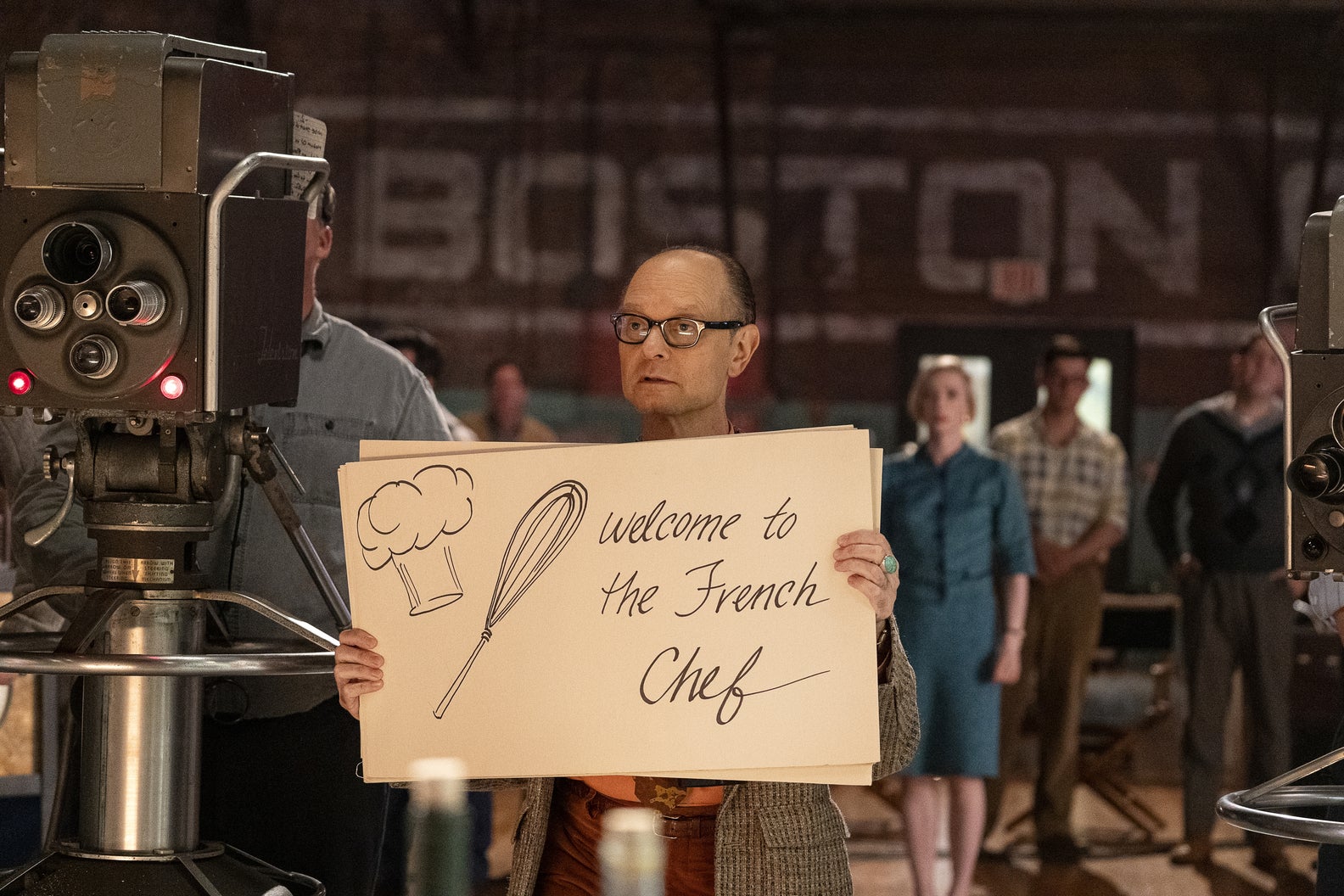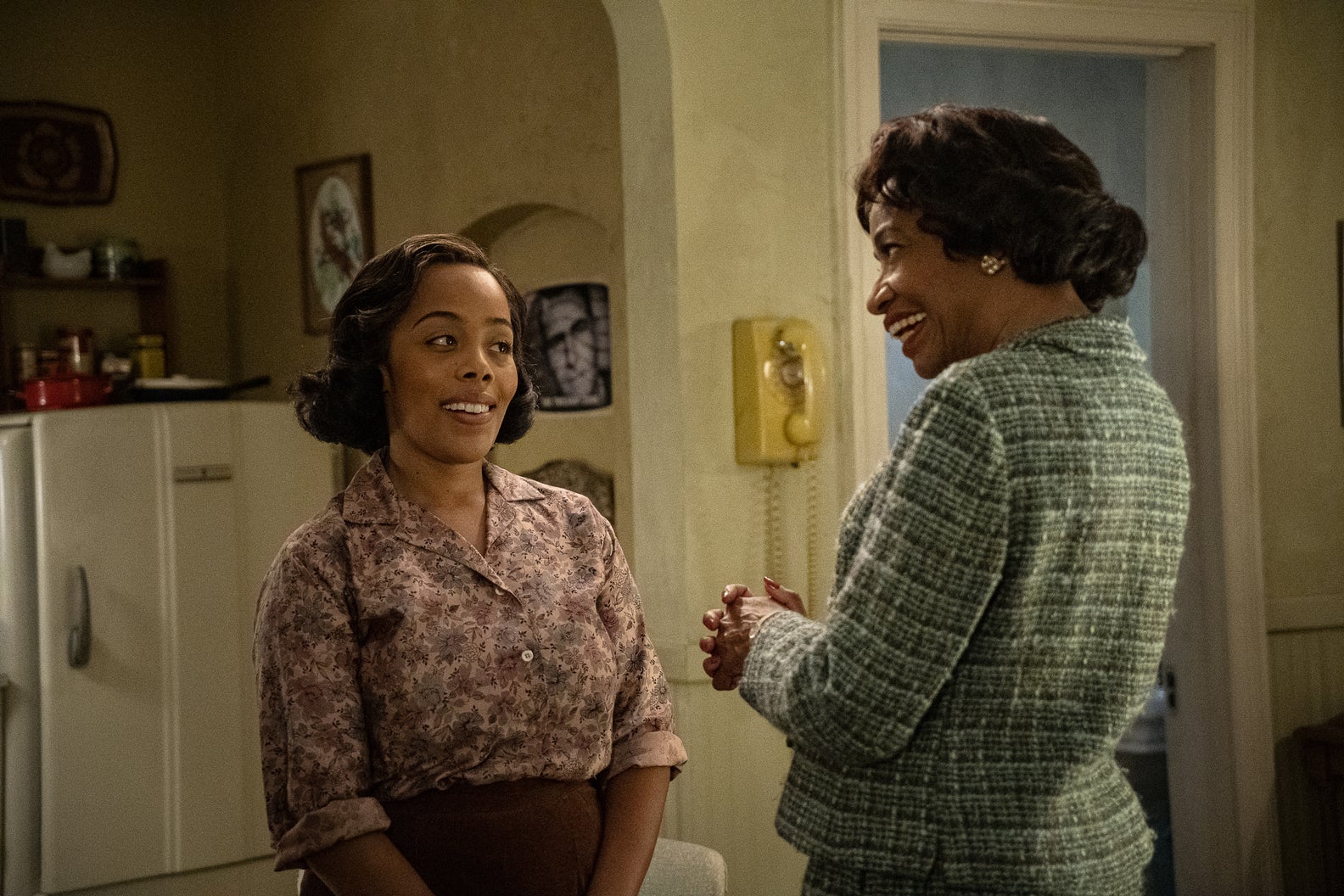Julia: What is fact and what is fiction in HBO Max’s new series?
An explainer on what’s real and what’s not in the drama about celebrity chef Julia Child

Your support helps us to tell the story
From reproductive rights to climate change to Big Tech, The Independent is on the ground when the story is developing. Whether it's investigating the financials of Elon Musk's pro-Trump PAC or producing our latest documentary, 'The A Word', which shines a light on the American women fighting for reproductive rights, we know how important it is to parse out the facts from the messaging.
At such a critical moment in US history, we need reporters on the ground. Your donation allows us to keep sending journalists to speak to both sides of the story.
The Independent is trusted by Americans across the entire political spectrum. And unlike many other quality news outlets, we choose not to lock Americans out of our reporting and analysis with paywalls. We believe quality journalism should be available to everyone, paid for by those who can afford it.
Your support makes all the difference.HBO Max’s new drama series Julia looks at the life of famed American cook and TV personality Julia Child.
Portrayed by British actor Sarah Lancashire, the first three episodes were released on 31 March.
While most versions of Child’s story to date have spotlighted her successful, long-running cooking show, this eight part drama uses it merely as window dressing. Instead, it focuses on the celebrity chef’s relationships, particularly her marriage to Paul Child (David Hyde Pierce) and its shifting power dynamics as she rises to fame.
Given that Child wrote over a dozen autobiographies and cookbooks and gave countless interviews, the show’s creator Daniel Goldfarb had plenty of material to work with.
However, Goldfarb admitted to The Washington Post that part of his process involved reading between the lines, as long as it didn’t “alter the course of the biography”.
We’ve broken down some crucial moments to see what is fact and what is fiction.
Julia Child
In the first episode we’re introduced to Child just as her career is starting to establish itself – with news of a book deal with publishing company Alfred A Knopf.
In real life Child did indeed sign her first cookbook deal with Knopf, which in turn led to an invitation to promote her book on Boston’s WGBH television programme I’ve Been Reading, hosted by Albert Duhamel.

Child’s personal life with her husband is also true to life. Paul firmly supported Child’s cooking show, going so far as to hold cue cards to help during filming, just as the new series depicts.
A secondary storyline highlights Child’s struggles with menopause and the end of her fertile years. As her character is seen wondering at what could have been, Child really did have moments in which she commiserated her “lack of progeny”, as reported in an excerpt from The French Chef in America, penned by her grandnephew, Alex Prud'homme.
One of Child’s key trademarks was her unusual voice, a combination of strange intonations and a Mid-Atlantic accent, despite her California roots. This is something that’s mentioned in the show and a trait Lancashire does a decent job of recreating.

Watch Apple TV+ free for 7 days
New subscribers only. £8.99/mo. after free trial. Plan auto-renews until cancelled

Watch Apple TV+ free for 7 days
New subscribers only. £8.99/mo. after free trial. Plan auto-renews until cancelled
Russell Morash
Acting as the story’s antagonist is Russell Morash (Fran Kranz), the top producer of WGBH, who is initially against the idea of featuring a cooking show on public television, especially one with an older woman. Although he seems to accept the idea at the end of the first episode, he quickly changes his mind in the second, after Child’s pilot doesn’t go as planned.
In reality, Child reflected fondly upon her pilot episode in her biography, My Life In France, describing it as “a bit of a high-wire act, but it suited me”. While she added that it was partly chaotic, nowhere did she mention any disaster so extreme as was pictured in the series. It’s safe to assume that her pan only caught on fire for comedic effect.
Russell Morash is a real person, but nowhere has it been written that he was opposed to producing Child’s show, The French Chef.
Alice Naman
Heavily featured in the first few episodes is Alice Naman (Brittany Bradford), the only woman producer at WGBH, who’s shown to be a major force in championing Child’s cooking show at the station.

There was no real-life Alice Naman at WGBH, and HBO have confirmed Naman’s character largely took inspiration from Ruth Lockwood, an assistant producer at WGBH who became an integral part of Child’s team.
A subtle nod to Lockwood can be found in one scene when Naman’s mother is lecturing her and resorts to using her full name, Alice Ruth Naman.
Judith Jones
A famous American editor, Judith Jones (Fiona Glascott) discovered Child and her iconic book Mastering the Art of French Cooking. At one point, Jones’ colleague mentions the author Updike, a direct reference to American author John Updike, whose body of work Jones is credited with shepherding.
She is best known for rescuing Anne Frank’s diary from a publisher’s reject pile, another component that the series alludes to in passing.
The first three episodes of Julia are on HBO Max now, with single episodes released weekly until 5 May.
Join our commenting forum
Join thought-provoking conversations, follow other Independent readers and see their replies
Comments